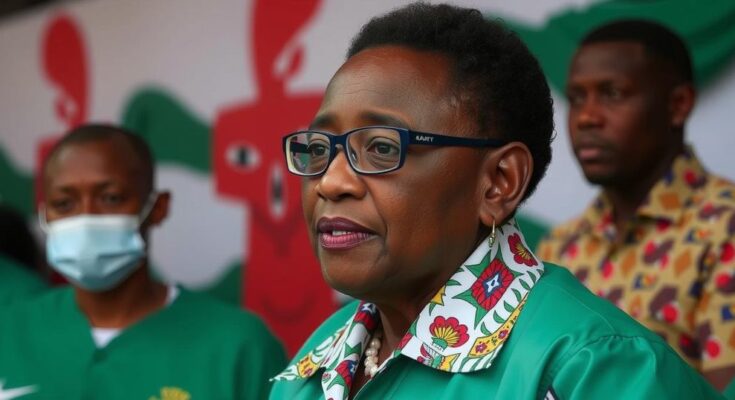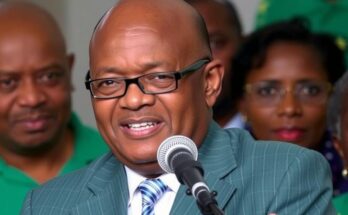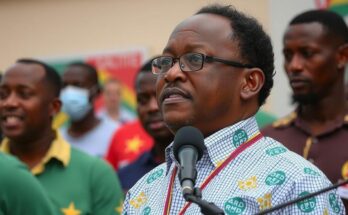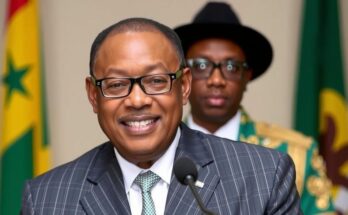Mozambique is experiencing heightened tensions due to a court ruling awaited on the disputed presidential election results from October, which sparked protests led by Venâncio Mondlane. Allegations of electoral fraud and police violence have fueled unrest, resulting in significant casualties and calls for national dialogue. The electoral commission denies claims of rigging, while international observers note flaws in the elections. A crucial court ruling is anticipated, which may determine the political trajectory of the country.
The atmosphere in Mozambique’s capital, Maputo, is currently fraught with tension as the nation awaits a crucial court ruling regarding the disputed results of the recent presidential election, held in October. The election, which led to widespread protests following its announcement, saw Venâncio Mondlane finishing second, claiming the vote was rigged. Mondlane, now in exile due to alleged police threats, has mobilized his supporters to protest against the alleged electoral fraud, even warning of potential uprisings should the initial results stand.
Since protests erupted on October 21, daily life in greater Maputo has been significantly disrupted, with roads becoming eerily quiet as demonstrators block transportation routes. The Constitutional Court is set to release its judgment at 15:00 local time, which will address the allegations of irregularities. Mondlane, representing himself as an independent candidate, secured only 20% of the votes, while the ruling Frelimo party’s candidate, Daniel Chapo, claimed a majority of 71%. Following allegations of a flawed electoral process by international observers, the electoral commission firmly rejects any assertions of election rigging.
The protests have escalated into confrontations with law enforcement, resulting in the deaths of at least 110 individuals, according to local monitoring group Plataforma Decide. Many of these casualties are reported to be victims of police violence, although authorities assert they acted in self-defense amidst unrest. Pope Francis has called for national dialogue in this predominantly Catholic nation, urging the pursuit of collective welfare during these turbulent times. While discussions between Mondlane and outgoing President Filipe Nyusi have taken place, the outcomes remain unclear, adding to the uncertainty surrounding the nation’s political climate.
The current unrest in Mozambique stems from disputes over the legitimacy of election results announced in October, which led to severe public outcry and protests. The political environment remains charged as historical grievances about governance and electoral integrity resurface. The ruling Frelimo party has maintained a firm grip on power since Mozambique’s independence nearly five decades ago, but recent events have illuminated concerns regarding democratic practices and public trust. The allegations of rigging and the subsequent violent protests underscore the challenges facing Mozambique’s political landscape.
In summary, the situation in Mozambique reflects deep-seated tensions surrounding the recent presidential election, marked by allegations of fraud and police violence. As Maputo braces for the court ruling, the national dialogue urged by religious leaders may prove critical for restoring peace and addressing the public’s grievances. The outcome of this legal decision will play a significant role in shaping Mozambique’s political future amidst calls for reform and accountability from its citizens.
Original Source: www.bbc.com




